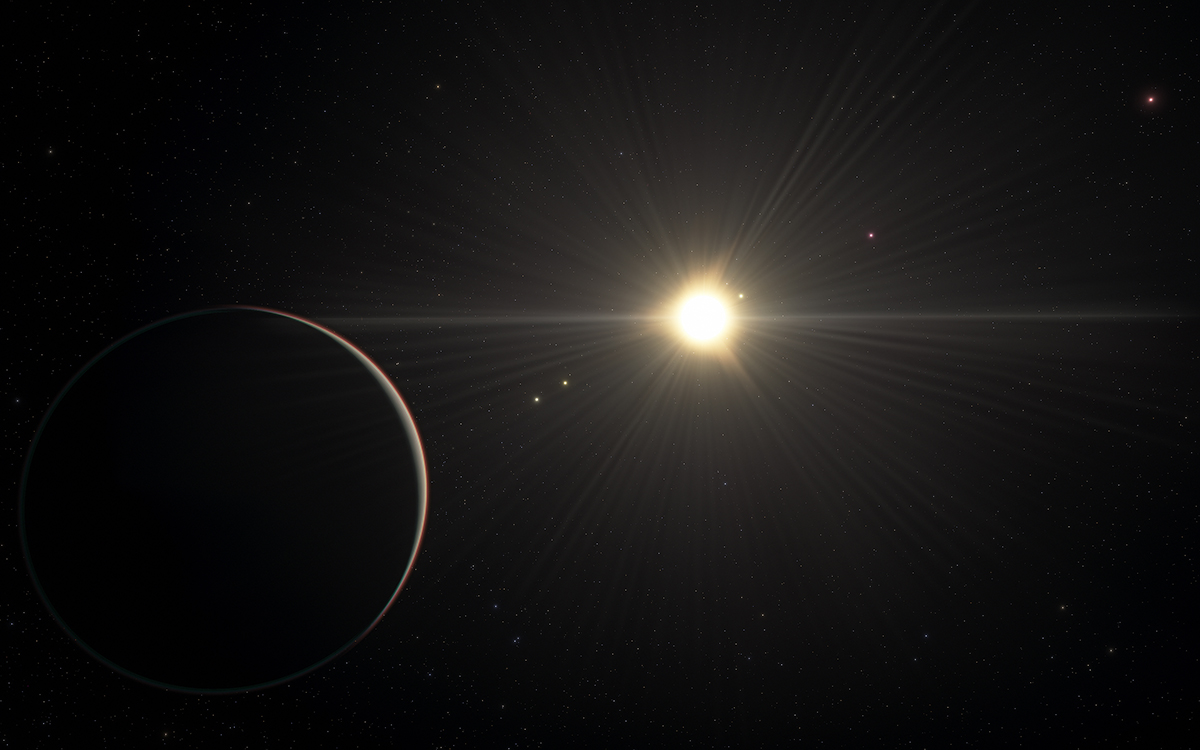
CHEOPS telescope reveals new planets orbiting star

A Swiss-designed telescope travelling on board the CHEOPS space satellite has revealed three previously undiscovered planets orbiting a distant star, whose physical composition raises questions about how planetary systems are formed.
Previous observations of the TOI-178 star had pointed towards a three-planet system. CHEOPS soon found two other planets, with all five orbiting the star over different time spans (two, three, six, ten and 20 days) but in harmony with each other.
Scientists believed that yet another planet could be present with an orbit period of 15 days. The CHEOPS telescope evaded a near collision with space debris to confirm the hypothesis and reveal a sixth planet.

More
In space exploration, Switzerland punches above its weight
The telescope was able to measure the size and density of each planet, readings that were to bring surprising results that challenge contemporary theories of how planetary systems evolve.
“In the few systems we know with such a harmony, the density of planets steadily decreases as we move away from the star,” stated European Space Agency scientist Kate Isaak. “In the TOI-178 system, a dense, terrestrial planet like Earth appears to be right next to a very fluffy planet with half the density of Neptune followed by one very similar to Neptune.”
“The system therefore turned out to be one that challenges our understanding of the formation and evolution of planetary systems,” added astrophysicist Adrien LeleuExternal link of the Center for Space and Habitability, which is run by the University of Bern, the University of Geneva and the National Center of Competence in Research PlanetS.

More
How a special telescope learns about new planets
The CHEOPSExternal link (CHaracterising ExOPlanet Satellite) mission launched in late 2019 and has a three-year mission to study 100 of the more than 4,000 known exoplanets – planets outside our solar system – discovered so far. CHEOPS was developed as part of a partnership between the European Space Agency (ESA) and Switzerland. The joint mission is led by the University of Bern, in collaboration with the University of Geneva.
Over 100 scientists and engineers from 11 European states were involved in constructing the satellite over five years. The Science Operations Center of CHEOPS is located at the observatory of the University of Geneva.

In compliance with the JTI standards
More: SWI swissinfo.ch certified by the Journalism Trust Initiative



























You can find an overview of ongoing debates with our journalists here . Please join us!
If you want to start a conversation about a topic raised in this article or want to report factual errors, email us at english@swissinfo.ch.